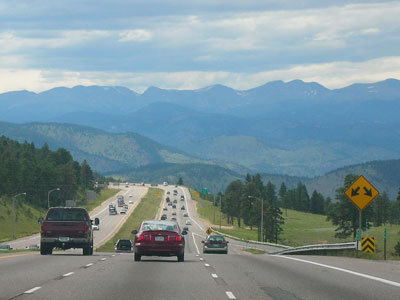All Nonfiction
- Bullying
- Books
- Academic
- Author Interviews
- Celebrity interviews
- College Articles
- College Essays
- Educator of the Year
- Heroes
- Interviews
- Memoir
- Personal Experience
- Sports
- Travel & Culture
All Opinions
- Bullying
- Current Events / Politics
- Discrimination
- Drugs / Alcohol / Smoking
- Entertainment / Celebrities
- Environment
- Love / Relationships
- Movies / Music / TV
- Pop Culture / Trends
- School / College
- Social Issues / Civics
- Spirituality / Religion
- Sports / Hobbies
All Hot Topics
- Bullying
- Community Service
- Environment
- Health
- Letters to the Editor
- Pride & Prejudice
- What Matters
- Back
Summer Guide
- Program Links
- Program Reviews
- Back
College Guide
- College Links
- College Reviews
- College Essays
- College Articles
- Back
Alternative Energy Sources
Right now, the main source of energy consumed by developed nation is fossil fuels. The world is increasing its use of fossil fuels, and fossil fuels are a nonrenewable resource. We will eventually run out of fossil fuels, so we need to find a way to become less dependent on them. Also, 90% of Earth's greenhouse gas emissions (pollution) come from fossil fuels. There are six other energy sources that we could use, which are: solar, hydroelectric, nuclear, geothermal, wind, and biomass. Most of these alternative energy sources do not create pollution and are renewable sources, unlike fossil fuels. The world should use as much of the hydroelectric energy source as possible.
We should switch our electricity source to hydroelectric. The hydroelectric energy source is renewable and there is no pollution involved in the process. Hydroelectric power is generated through the force of falling or flowing water. How this process works is that the moving water spins a turbine, which creates electricity. This process takes place in dams. All that the world would have to do to switch to hydroelectricity is that we would have to build dams near cities.
We should switch our car fuel source to electric energy created by hydroelectric power plants. People could update their garages to have power cords to recharge their vehicles at night. There is no pollution created through this entire process.
Even though that we will not run out of fossil fuels for decades, we need to be prepared for the future, and it would be nice to not have any more pollution in our world.

Similar Articles
JOIN THE DISCUSSION
This article has 0 comments.

My inspiration for this piece came from a research project in my 8th grade science class. We briefly covered all of these alternate energy sources, and I was curious to learn more. I did more research, and that is how I came up with my theoreum for the future.That is also how I became interested in writing this article.